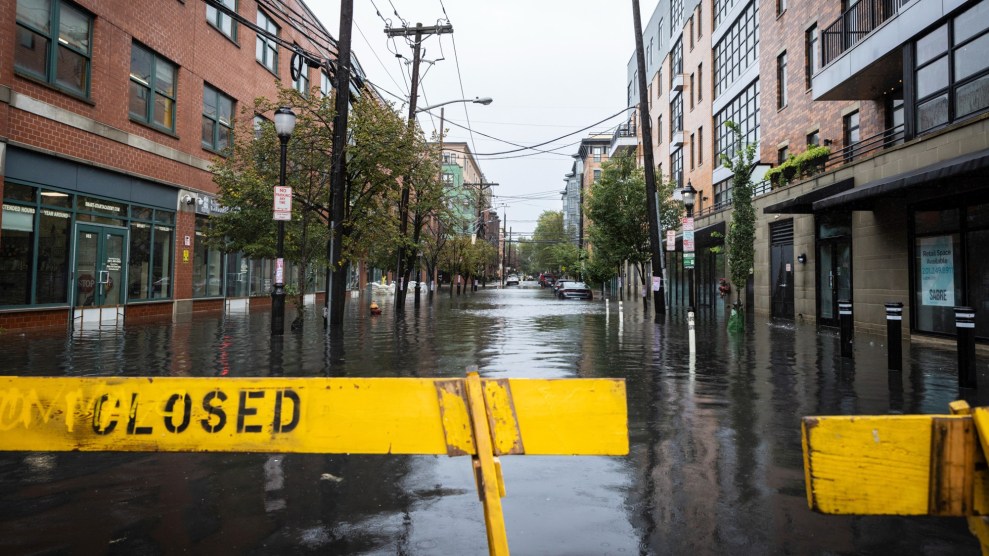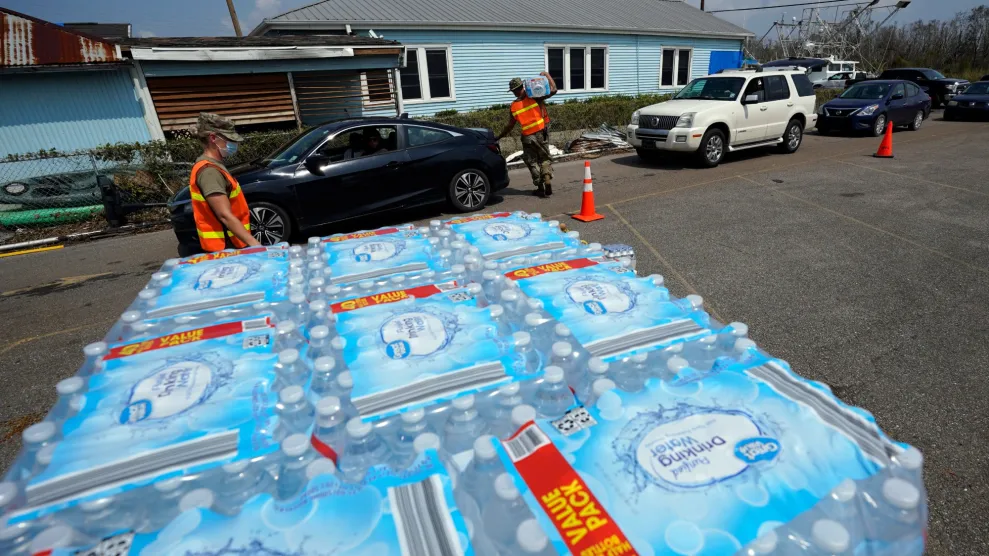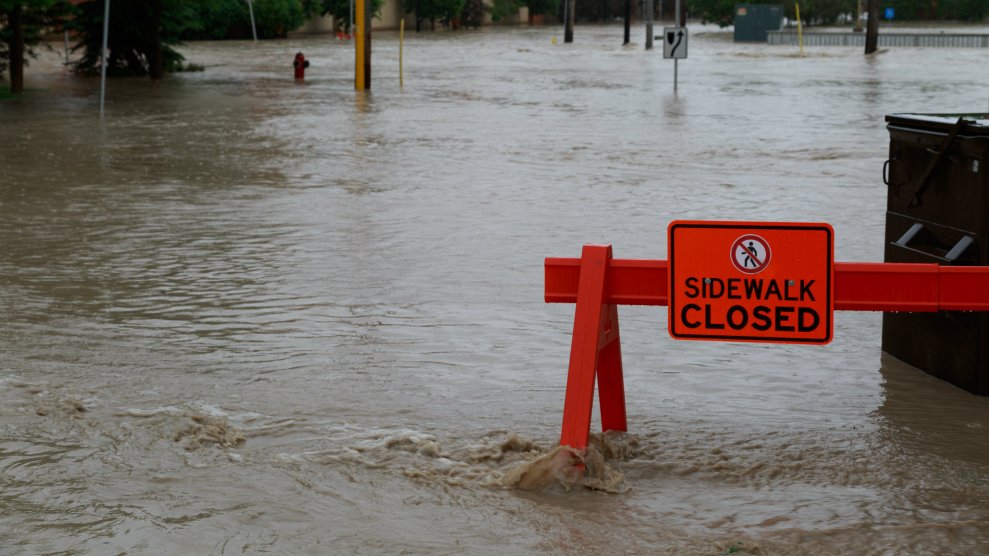
A flooded street due to heavy rain in Hoboken, NJ, on September 29, 2023.Stefan Jeremiah/AP
New York City is underwater. As heavy rainfall hits the northeast, making the city’s roads impassable and halting train and subway service, social media videos show flooding through holes in subway walls and water rushing into buses and cars—as well as sewage pushing up into homes. Twenty-three million people in the area are on flood watch, with New York Gov. Kathy Hochul, Mayor Eric Adams, and New Jersey Gov. Phil Murphy all issuing states of emergency and deploying rescue teams.
New York’s battle with rain and floods isn’t new. The city has a devastating history of flooding in disasters like 2021’s Hurricane Ida, which broke city records for amount and intensity of rainfall. Friday’s floods mark the wettest day in New York City since Ida—from 1958 to 2016, Climate Central reports, the northeast saw the country’s biggest increase in heavy precipitation events.
Rainfall and floods are only expected to worsen due to climate change, and the city’s wastewater and drainage infrastructure isn’t equipped for the pressure. A FEMA report from this summer concluded that most cities’ drainage systems “were not built to handle the amount of runoff from increasingly intense storms.”
Those infrastructure problems are set to worsen, compounding the impact. Erika Smull, a municipal bonds analyst at Breckinridge Capital Advisors, is a water utilities expert and former environmental engineer. She explained to me earlier this year that US water infrastructure “is reaching or has reached the end of its usable life. It’s been there for longer than it should be. We are entering into a new era.”
Ida also led to scrutiny of New York’s illegal basement apartments: thirteen residents trapped in the unregulated dwellings were killed by its floods. “Ida will not be the last flash flood that puts the lives and homes of basement-dwellers at risk,” city Comptroller Brad Lander wrote in a 2022 report, highlighting the fact that such apartments are generally occupied by low-income people, people of color, and immigrants.
Climate disasters of all kinds disproportionately harm marginalized communities, studies have repeatedly found. In New York City, flood risks are greater in historically Black neighborhoods than in white ones. Across the country, communities of color are less likely to receive funding to fix failing or broken water infrastructure that may exacerbate flooding, and disabled people are two to four times more likely to die or be critically injured during disasters like floods.
The floods come a week after Gov. Hochul signed a bill requiring flood risk be disclosed by home sellers in the state, and two weeks after 75,000 people marched through New York’s streets to demand climate action.













